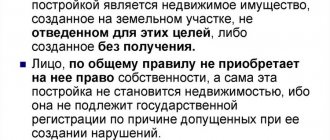Legislative acts of various countries, such as Russia, Ukraine, Kazakhstan and others, provide for liability for committing crimes against sorpority. The Criminal Code of the Russian Federation establishes punishment for such an act as buying stolen goods. Illegal sale or purchase of stolen property is being investigated by the police.
Features of the crime
There is no need to be afraid; it is impossible to get a real sentence for unintentionally acquiring stolen goods. However, financial and morale will suffer throughout the investigation and possibly trial. It may not reach him if the property has gone through a long process of resale before falling into the hands of law enforcement agencies.
Often, people, in search of ways to save money, turn to flea markets and stores with used goods, without knowing anything about the sellers. Thus, they can fall into the sphere of crimes covered by this article. Once again, it is worth emphasizing that it will be very difficult to prove your intent, but the case can very likely end in a fine and/or confiscation of property.
The following video will tell you in detail and with useful diagrams about buying stolen goods:
Concept and applicable standards
The central subject of the crime is illegally obtained property. Information about the crime itself should be found in the articles:
- 158 of the Criminal Code of the Russian Federation – the commentary reveals the concept of “property”;
- 175 of the Criminal Code of the Russian Federation - direct acquisition and sale of stolen or illegal goods.
The subject of the crime does not necessarily have to be something stolen. It will be any object obtained as a result of a crime; the attacker owns it illegally; there are no documents confirming ownership.
In this regard, in criminal and civil law, the concept of acquisition is distinguished. An attacker cannot convey a property relation that he does not possess. Therefore, for criminal law, acquisition means the ability to own and use an object and its properties.
Now let’s turn to the legal characteristics of the acquisition and sale of property known to be obtained by criminal means.
Legal characteristics
The legal description is quite transparent and fully answers all questions:
- The objective side is the commission of one of the actions (purchase, sale) on the subject of the crime;
- The subjective side is the paid or gratuitous appropriation of illegal property.
Thus, crimes can be divided into two conditional groups:
- Promised purchase;
- Unpromised acquisition.
Please note that the acquisition must be unpromised. Otherwise, the buyer risks becoming an accomplice and facing a real prison term.
Next, we will consider the corpus delicti under Article 175 of the Criminal Code of the Russian Federation.
Composition of the crime and qualifying characteristics
The corpus delicti with a sentence under Art. 175 of the Criminal Code of the Russian Federation forms the fact of committing one of two types of actions: acquisition or sale. After this, the offense is considered committed. Next, qualifying features come into play:
- The crime was committed by one person;
- The crime was committed by an organized group;
- By a group of persons in conspiracy;
- Large amount of damage;
- Figuring as a subject of a car;
- Use of official position.
Features of buying and selling stolen goods
The acquisition and sale of property that is stolen is possible by a person who has no idea about the real origin of the thing.
In this case, there is no criminal liability, but it will be necessary to prove that the person is truly unaware that the item is stolen. During the investigation of a criminal case, a person can call and ask questions of interest to the investigator. The person will also have to be present at the trial and provide the same information that was recorded in the records by the law enforcement official. It is worth noting that the number of cases in the category related to the resale of property is small. In this case, it is quite difficult to identify the person who sold the stolen goods.
It is difficult to prove the fact that a person is aware that his purchase is an item that was stolen from someone, especially when the purchase takes place in a pawnshop, market or stores selling used goods. In this case, the buyer may face a fine or, most often, confiscation of the item.
Modern methods of legalizing property obtained by criminal means
In order to protect yourself in the future from such unpleasant encounters with servants of the law, you need to know what to pay close attention to when purchasing any item. Some of the most common ways to legalize stolen property:
- Interruption of the identification or serial number is especially common when selling illegal equipment and stolen cars;
- Changing the appearance - for example, if you repaint a car and change its license plates, it can be easily passed off as another by attaching documents corresponding to the new paint;
- Passing through a large number of “hands” - behind a large list of intermediate buyers, you can lose the main node with which this network began.
Legal regulation in the Russian Federation
Bringing to justice persons who allowed the sale and acquisition of stolen valuables is carried out within the framework of the articles of the Criminal Code of the Russian Federation. In particular, the corpus delicti and the list of applied sanctions are reflected in Art. 175 of the Criminal Code.
As is typical for this norm, the purchase of stolen goods will be considered completed from the moment a person receives use or possession of a stolen item in any way (regardless of the further purpose of its use).
Punishment and responsibility
According to Article 175 of the Criminal Code of the Russian Federation, for buying stolen goods and similar acts, attackers can receive several types of punishment:
- For part one - up to a 40,000 ruble fine, no more than two years of correctional labor, forced labor, imprisonment, or up to 480 hours of compulsory labor.
- For the second part - up to five years of forced labor, imprisonment with a fine (up to 80,000 rubles), arrest for up to six months, or restriction of freedom for up to three years.
- For the third part – up to five years of forced labor with or without the addition of:
- Restrictions on freedom up to two years;
- Imprisonment for up to seven years with an additional fine in an amount not exceeding 80,000 rubles.
Liability in a criminal case of a pawnshop that bought stolen goods
When handing over things to a pawnshop, they do not care about the origin of the goods. And since the search for goods is carried out according to the description and photo provided by the injured party, she will quickly be able to distinguish her things from others. If goods are found in pawn shops, a police officer is obliged to seize them and draw up a report. Next, they conduct an examination and find out whether the goods correspond to what was stolen.
If it turns out that everything matches, the actions of the buyer will be qualified under Article 175.
Judicial practice on the purchase of stolen goods in accordance with Art. 175 of the Criminal Code of the Russian Federation
Let's look at 2 cases of legalization of property obtained by crime:
- The entrepreneur of a retail grocery store, realizing the danger and illegality of his act, bought several boxes of alcoholic products on the market from a dubious person without attached documents determining the safety and legitimacy of the products. Under Article 175, the defendant was fined 10 thousand rubles.
- The defendant stole the phone and tried to sell it to a pawn shop. After the fact of the crime was revealed, during the court hearing the offender received a punishment of 80 hours of compulsory labor.
Today, buying stolen goods, smuggling money, tobacco and alcohol, as well as similar crimes, alas, are not uncommon. They undermine the economic condition of the state as a whole and each of its citizens in particular.
The following video will tell about another case of application of Article 175 of the Criminal Code of the Russian Federation:
Corpus delicti
The sale of stolen goods can be characterized through the prism of the elements of an unlawful act. It includes:
- The objective side, which is expressed in the sale or acquisition. In the latter case, the thing can be received in various ways, including through the conclusion of purchase and sale agreements, donation, etc. To assess what was done, it does not matter whether the acquisition was officially formalized or not. If an agreement is concluded, it is recognized as void on the basis of civil law. By sale, the legislator understands the fact of transferring a thing into the possession of another person. At the same time, it switches to both paid and gratuitous grounds.
- The subject is property that was unlawfully taken from the owner’s possession.
- The subjective side includes the presence of direct intent. That is, the person knew that he would buy stolen property, but this fact did not stop him.
- When a temporary acquisition (for example, rent) or sale was made, there is no element of the act in question.
- The object is the order that must be observed during the sale of things.
- Subject is a person who, at the time of the commission of the act, has reached the age of sixteen. In this case, an important condition is that he should not steal the thing. Otherwise, the assessment is carried out according to another norm of the Criminal Code of the Russian Federation.
In practice, acquisitions are divided into two groups. These include:
- unpromised;
- promised.
Important! Liability under Article 175 of the Criminal Code of the Russian Federation is provided only for an unpromised type of acquisition. If one person wanted to steal property, and another promised that he would buy this thing, the offense is classified as complicity. The verdict refers to Article 33 of the Criminal Code of the Russian Federation.
Proof that the act is completed is the fact that the property has passed into the possession of another person. In this case, the rights to use, possession or disposal can be transferred.
Concept of violation and norm
Article 158 of the Criminal Code establishes the rules governing the crime of secret theft of someone else’s property - theft.
This article contains several parts, each of which provides for aggravated theft, which entails more serious liability.
Persons who have already reached the age of fourteen can be held accountable for theft. There are several types of theft depending on the damage caused to citizens, organizations or the state:
- in a significant amount;
- on a large scale;
- especially large size.
It is assumed that any property can be secretly stolen: money, valuables, household appliances, etc.
Stolen property can be sold in any way, which is how criminals make profit. Sales can be carried out not only by the criminal himself, but also by other persons who have offered their assistance. Thus, the norm comes into force - the purchase of stolen goods, Article 175 of the Criminal Code of the Russian Federation.
In this situation we are talking about an acquisition or sale that was not agreed upon in advance. In a situation where a citizen promises to sell or otherwise dispose of property that has not yet been stolen, then in this case we will be talking about complicity in the commission of a crime. A person who has reached sixteen years of age may be held liable for this act.








